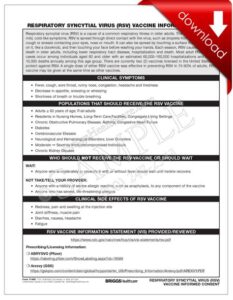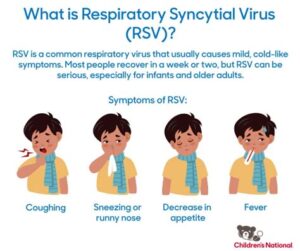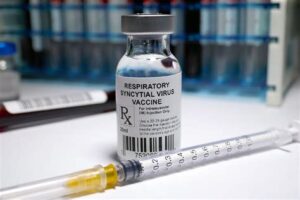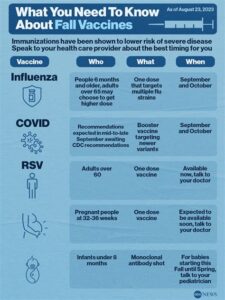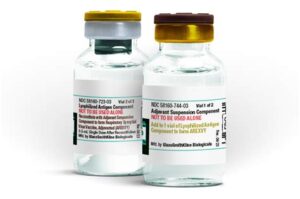Explore key insights on RSV and COVID-19 co-infection, vaccine interactions, safety, research outcomes, and recommendations for simultaneous vaccinations.As respiratory viruses continue to pose significant health risks, understanding the interplay between different illnesses is crucial. With the rise of RSV (respiratory syncytial virus) alongside the ongoing challenges posed by COVID-19, health experts are exploring the implications of co-infection and the potential benefits of simultaneous vaccination. This blog post delves into the complexities of RSV and COVID-19 co-infection, examining potential interactions between their vaccines and the safety considerations that come into play when vaccinating against both viruses at the same time. We will also review the latest research on combined vaccination outcomes and provide recommendations for those considering simultaneous vaccination. Join us as we unpack the latest insights into these pressing health topics and what they mean for you and your loved ones.
RSV and COVID-19 co-infection
Respiratory Syncytial Virus (RSV) and COVID-19 are both respiratory illnesses that can significantly impact public health, particularly among vulnerable populations. Recent studies have highlighted the potential for co-infection, where an individual is infected with both viruses at the same time. This raises important questions about disease severity, treatment, and prevention strategies.
Research indicates that individuals with RSV co-infected with COVID-19 may experience more severe symptoms compared to those infected with just one of the viruses. For example, a study from the Centers for Disease Control and Prevention (CDC) found that patients suffering from both infections had higher hospitalization rates and longer recovery times.
Understanding the dynamics of RSV and COVID-19 co-infection is crucial, particularly for healthcare providers. As we combat these viruses, it’s essential to develop effective public health strategies and vaccination protocols that account for the possibility of simultaneous infections. Continued research is necessary to unravel the implications of co-infection and to enhance our response to respiratory virus outbreaks.
Potential vaccine interactions
As the world continues to grapple with the dual challenges of RSV (Respiratory Syncytial Virus) and COVID-19, understanding the potential interactions between vaccines for these viruses is crucial. Researchers and health officials are working diligently to assess how the immune responses generated by one vaccine might impact the effectiveness and safety of another.
One of the primary concerns regarding *simultaneous vaccination* is whether receiving the RSV and COVID-19 vaccines at the same time could lead to alterations in immune responses. Preliminary studies suggest that co-administration of different vaccines may enhance certain aspects of immunity while potentially diminishing others. Therefore, ongoing research is necessary to elucidate these interactions comprehensively.
It’s also worth noting that factors such as age, pre-existing health conditions, and the specific types of vaccines in use can significantly influence the outcomes of simultaneous vaccinations. Experts recommend monitoring these variables closely to ensure that both vaccines maintain their efficacy when given together. The ability to get vaccinated against multiple viruses in a single visit could enhance public health responses and improve vaccination rates, but understanding the potential vaccine interactions remains essential for safe immunization strategies.
Safety considerations for simultaneous vaccination
As the medical community seeks to manage public health challenges, the possibility of receiving the RSV and COVID-19 vaccines at the same time has raised important safety considerations. Understanding the impact of administering both vaccines concurrently can help healthcare providers make informed decisions that prioritize patient safety.
One of the primary concerns with simultaneous vaccination is the potential for adverse effects. While studies indicate that both vaccines are generally safe when given on the same day, patients may experience intensified side effects. For instance, individuals might report increased soreness at the injection site, fatigue, or mild fever following vaccination. It is crucial for healthcare providers to inform patients about these possibilities so they can plan their post-vaccination care accordingly.
Moreover, there is ongoing research to further evaluate the immunological responses of co-vaccination. Monitoring the potential interactions between the RSV and COVID-19 vaccines will help assess if there is any difference in how the body reacts when the two vaccines are administered simultaneously. This input will be vital for developing best practices for vaccination protocols and for ensuring the broadest protection for patients.
Ultimately, as more data becomes available, healthcare professionals will be better equipped to provide recommendations regarding the timing and administration of the RSV and COVID-19 vaccines, ensuring that patient safety and immunity are prioritized.
Research on combined vaccination outcomes
The ongoing global pandemic and the resurgence of diseases like RSV (Respiratory Syncytial Virus) have spurred significant research into the effectiveness and safety of administering multiple vaccines concurrently. Studies are now focusing on the combined outcomes of vaccination against COVID-19 and RSV, particularly in vulnerable populations such as young children and the elderly.
Recent trials have indicated that individuals receiving both the COVID-19 and RSV vaccines simultaneously may experience a similar immune response to those who receive the vaccines separately. This is particularly important in a time when healthcare resources are strained, and the need for efficient vaccination practices is paramount. According to one study conducted by the Center for Disease Control, co-administration did not diminish the immunogenicity of either vaccine, showing robust antibody responses against both viruses.
However, researchers also noted the importance of monitoring for any adverse reactions that could arise from simultaneous vaccination. Some individuals might report mild side effects such as fatigue or low-grade fever. Health experts recommend continued vigilance and thorough reporting of any unusual symptoms
Recommendations for simultaneous RSV and COVID-19 vaccination
As the world continues to adapt to the challenges posed by multiple respiratory viruses, particularly RSV (Respiratory Syncytial Virus) and COVID-19, health organizations are exploring the possibility of simultaneous vaccinations for enhanced public health protection. This approach could simplify vaccination processes and increase coverage rates, especially in vulnerable populations.
Health authorities recommend consulting with healthcare providers about the benefits and potential risks of receiving both vaccines at the same time. According to recent studies, simultaneous RSV and COVID-19 vaccinations can be safely administered. However, monitoring for any adverse reactions post-vaccination is essential. It can be helpful for patients to discuss their individual health conditions, any prior reactions to vaccines, and the current recommendations from their local health departments.
It is crucial to remain aware of updated guidelines from reputable sources such as the Centers for Disease Control and Prevention (CDC) and the World Health Organization (WHO) as more research is conducted. These organizations continuously evaluate emerging data to provide recommendations that prioritize safety and efficacy in vaccination practices.
Frequently Asked Questions
Can I receive the RSV and COVID vaccines simultaneously?
Yes, you can receive both the RSV and COVID vaccines at the same time, provided that they are administered using separate injection sites.
What is RSV and why is it important to get vaccinated against it?
Respiratory Syncytial Virus (RSV) is a common virus that causes respiratory infections, particularly in infants and the elderly. Vaccination helps prevent severe illness and hospital visits associated with RSV.
What are the benefits of getting both vaccines at the same time?
Getting both vaccines at the same time can save you a trip to the clinic, reduce overall healthcare costs, and ensure that you are protected against both viruses as the seasons change.
Are there any side effects associated with getting the RSV and COVID vaccines together?
Common side effects may include soreness at the injection sites, fatigue, and mild fever. These side effects are typically mild and resolve on their own within a few days.
Is it safe to administer the RSV and COVID vaccines to children?
Yes, both vaccines have been tested for safety and efficacy in children, although specific age recommendations may vary. It’s advisable to consult with a pediatrician regarding vaccination for your child.
How long should I wait between getting different types of vaccines?
Current guidelines suggest that most vaccines can be given at the same time or within a short interval, but it’s best to consult your healthcare provider for specific recommendations regarding RSV and COVID vaccines.
Where can I get the RSV and COVID vaccines?
Both vaccines may be available at healthcare provider offices, pharmacies, and local vaccination clinics. Check with your local health department or provider for specific locations and availability.
